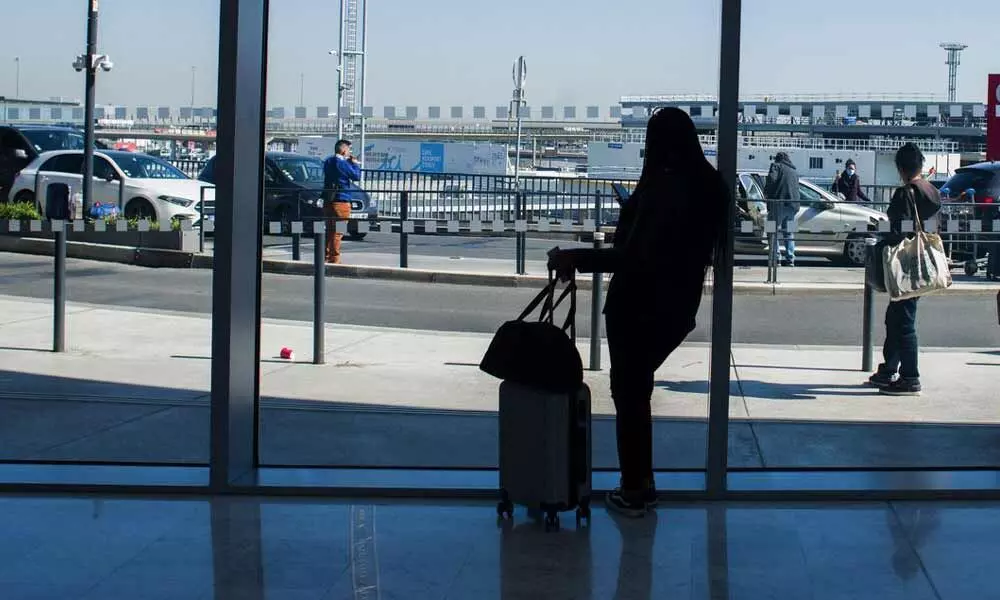Hopes rise for vaccinated travellers in Europe, but global restart yet to begin
Opening of borders by European states to most vaccinated travellers are a step in the right direction, but restoring global connectivity requires far more than individual state initiatives
image for illustrative purpose

A consistent approach across Europe is required if the EU digital Covid certificate is to be implemented effectively by 1 July. And around the world, governments need to allow digital certificates to be integrated in passenger applications such as IATA Travel Pass, in order to relieve pressure on airports and at borders from more complex passenger processing as the number of travellers ramps up
The International Air Transport Association (IATA) welcomed the relaxation of Covid-19 border measures for vaccinated passengers, and the broader use of affordable antigen testing adopted by Spain and France this week. This is tempered by ongoing disappointment at the failure to implement harmonized measures across Europe and deep frustration at the lack of coordination among governments worldwide for a data-driven risk-managed approach to re-establishing the freedom to travel. As of 7 June, Spain opened its borders to most vaccinated travellers from around the world and allowed EU travellers to enter the country with a negative antigen test. Furthermore, passengers coming from low-risk countries (including the UK) can enter without any restrictions. From 9 June France opened to vaccinated travellers from all but those countries assessed as "high risk". Vaccinated travellers from "medium-risk" countries will need to provide proof of a negative Covid-19 antigen or PCR test, and unvaccinated people must still self-isolate for seven days.
"It's encouraging to see more European countries taking steps to reopen borders. They recognize the opportunity created by vaccination and are making travel more affordable with the use of antigen testing. But this approach is not universal across the continent. Many European states have yet to significantly relax borders at all. This fragmentation should be replaced with a unified approach that is consistent with the recommendations of the EU to which they belong. People, businesses and economies would all benefit from greater alignment across Europe in relaxing measures and restoring the freedom to travel," said Willie Walsh, IATA's Director General. A consistent approach across Europe is required if the EU digital Covid certificate is to be implemented effectively by 1 July. And around the world, governments need to allow digital certificates to be integrated in passenger applications such as IATA Travel Pass, in order to relieve pressure on airports and at borders from more complex passenger processing as the number of travellers ramps up. These moves by Spain, France and other European states are a step in the right direction, but restoring global connectivity requires far more than regional or individual state initiatives.
According to the Centers for Disease Control and Prevention (CDC) do not travel internationally until you are fully vaccinated. If you are not fully vaccinated and must travel, follow CDC's international travel recommendations for unvaccinated people.
Fully vaccinated travellers are less likely to get and spread Covid-19. However, international travel poses additional risks, and even fully vaccinated travellers might be at increased risk for getting and possibly spreading some Covid-19 variants. The Covid-19 situation, including the spread of new or concerning variants, differs from country to country. All travellers need to pay close attention to the conditions at their destination before traveling.
If you have a condition or are taking medication that weakens your immune system, you may not be fully protected even if you are fully vaccinated. Talk to your healthcare provider. Even after vaccination, you may need to continue taking all precautions.
Make sure you understand and follow all airline and destination requirements related to travel, mask wearing, testing, or quarantine, which may differ from US requirements. If you do not follow your destination's requirements, you may be denied entry and required to return to the United States. Check the current Covid-19 situation in your destination.
During traveling
Wearing a mask over your nose and mouth is required on planes, buses, trains, and other forms of public transportation traveling into, within, or out of the United States and while indoors at US transportation hubs such as airports and stations. Travelers are not required to wear a mask in outdoor areas of a conveyance (like a ferry or top deck of a bus).
Follow all recommendations and requirements at your destination, including mask wearing and social distancing
Before you arrive in the United States
All air passengers coming to the United States, including US citizens and fully vaccinated people, are required to have a negative Covid-19 test result no more than 3 days before travel or documentation of recovery from Covid-19 in the past 3 months before they board a flight to the United States.
Vaccines could give a boost to India's aviation industry, which is expected to witness Rs 35,000 crore ($4.99 billion) investment in the next four years. The Indian Government is planning to invest $1.83 billion for development of airport infrastructure along with aviation navigation services by 2026.

